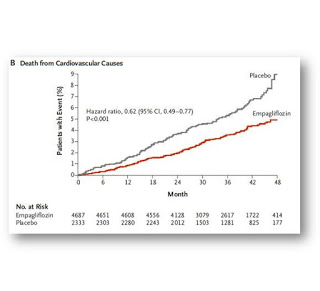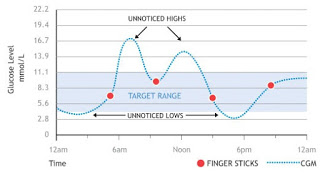In follow up to the press release I blogged about last month, we now have the data which has rocked the foundation of the diabetes world: the diabetes medication empagliflozin has been found to reduce the risk of cardiovascular deaths and all cause mortality in patients with type 2 diabetes and cardiovascular disease.
The EMPA-REG study, published by Canadian Dr Bernie Zinman and colleagues in the New England Journal of Medicine, randomized 7020 people with type 2 diabetes and established cardiovascular disease to receive either empagliflozin 10mg, empagliflozin 25mg, or placebo, in addition to their usual care.
After a median of 3.1 years, they found that there was a significantly lower risk of death from cardiovascular causes (3.7% on empagliflozin vs 5.9% in the placebo group), a reduced risk of death from any cause (5.7% on empagliflozin vs 8.3% on placebo), and a reduction in hospitalization for heart failure (2.7% on empagliflozin vs 4.1% on placebo).
Put another way: empagliflozin decreased the risk of hospitalization for heart failure by 35%, reduces the risk of death from cardiovascular causes by 38%, and reduced the risk of death from any cause by 32%.
Put yet another way: if 39 people were treated with empagliflozin for 3 years, one death was prevented. This number is very comparable to the power of other medications that we use to prevent cardiovascular disease and death in people who are at high risk: for example,
- simvastatin (a cholesterol medication): treating 30 people for 5.4 years prevents one death
- ramipril (a blood pressure medication): treating 56 people for 5 years prevents one death













